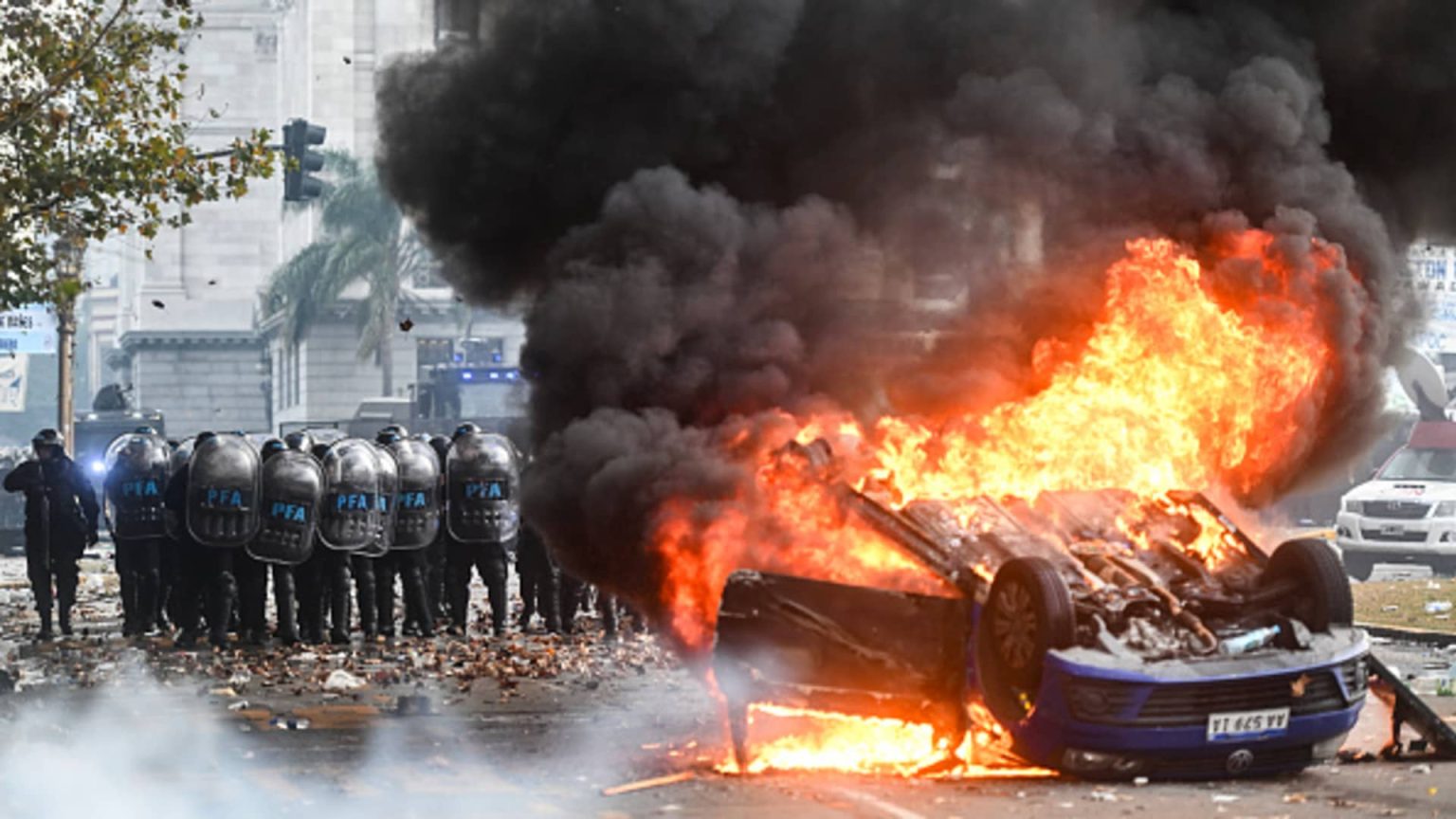Argentina’s Senate narrowly passed President Javier Milei’s sweeping economic reform bill, which aims to revive the crisis-stricken economy. The bill, initially backed by the lower house in April, includes measures such as privatizing state entities, providing incentives for foreign investors, and diluting labor rights. The controversial bill was approved by a narrow margin of 37-36 after a marathon debate, with Vice President Victoria Villarruel casting the deciding vote. The bill will now be studied point by point before final approval, which is expected on Thursday.
Protests erupted outside the Senate as lawmakers debated the economic reform bill, with clashes between protesters and riot police. Photos showed police using water cannons to disperse protesters and a car set ablaze during the demonstrations. While some protesters demonstrated peacefully, others engaged in violent acts, leading to arrests and the use of tear gas. The Vice President of Argentina acknowledged the divide in the country, describing it as “two Argentinas” – one violent and the other waiting for change with pain and sacrifice.
Leftist political parties and labor unions in Argentina strongly oppose Milei’s economic agenda, which they see as austerity measures that will worsen the economic crisis. In early May, Milei’s government faced its second general strike in less than six months, as workers nationwide expressed their anger and frustration with the proposed reforms. Despite the opposition, Milei remains steadfast in his belief that there is no alternative to his “shock therapy” approach to address the economic challenges facing the country.
President Milei, a right-wing leader who won the presidential runoff vote late last year, has positioned himself as a champion of free-market principles and believes that bold economic reforms are necessary to jumpstart the economy. The passing of the economic reform bill in the Senate marks a tentative legislative victory for Milei, demonstrating his ability to push through his agenda despite fierce opposition. The bill’s approval sets the stage for significant changes in Argentina’s economic landscape, with implications for state-run entities, foreign investment, and labor rights.
The debate surrounding the economic reform bill reflects the deep divisions within Argentine society over how to address the country’s economic challenges. Supporters of Milei’s reforms see them as necessary steps to spur economic growth and attract investment, while opponents fear that the measures will exacerbate inequality and worsen living standards for ordinary Argentinians. The passage of the bill is likely to intensify political tensions in the country and fuel further protests and opposition from left-wing groups and workers’ unions.
As Argentina confronts a deep economic crisis marked by high inflation, rising poverty levels, and a weakening currency, the success or failure of Milei’s economic reform agenda will have far-reaching consequences for the country’s future. The passage of the bill in the Senate represents a critical step towards implementing the reforms proposed by the right-wing government, but it also highlights the challenges and resistance that Milei will face as he seeks to reshape Argentina’s economic policies. The coming days and weeks are likely to be marked by continued protests, political maneuvering, and debates over the best path forward for Argentina’s struggling economy.


